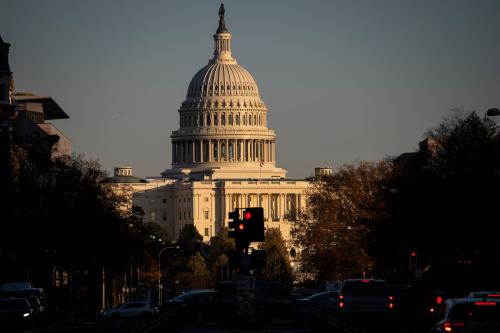

9:00 am EDT - 10:15 am EDT
Past Event
On August 9, 2022, President Biden signed into law the Creating Helpful Incentives to Produce Semiconductors for America (CHIPS) and Science Act of 2022, in an effort to revitalize U.S. manufacturing, jobs, and supply chains. As China ramps up its advances in technology and threatens to outpace the U.S. and its allies in this arena, how will this act increase U.S. economic and technological competitiveness? As supply chain issues caused by the COVID-19 pandemic exposed, the United States and the world rely on East Asia for a majority of the global production of chips. The CHIPS and Science Act is a huge investment in American semiconductor manufacturing as well as research and development — but it remains to be seen if the United States will be able to maintain its dominance in the wider technology race. At stake is whether the United States and its allies can sustain the technological edge underlying American foreign policy and strategy.
On September 30, the Foreign Policy program at Brookings hosted a webinar with White House Senior Director for Technology and National Security Tarun Chhabra to discuss the CHIPS and Science Act of 2022. Brookings Fellow Chris Meserole engaged Chhabra in a moderated discussion, followed by a discussion with Brookings scholars Melanie Sisson and Sarah Kreps on how competition between the United States and China will evolve presently and into the future.
Viewers submitted questions by emailing [email protected] or on Twitter using the hashtag #GlobalChina.
Moderator
Moderator
Panelist

Landry Signé
May 27, 2025

March 5, 2025

Elaine Kamarck
January 28, 2025